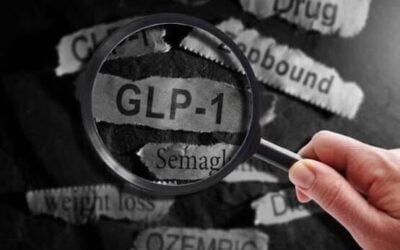Paul Epstein, ND
Nicola St. Mary, ND
There are many naturopathic approaches to anxiety and depression. This article will focus on mind-body therapeutic interventions, including mindfulness and mind-body counseling. These modalities have been shown to enhance cellular, genetic, and personal resiliency, ie, the ability to adapt and respond to stress – a key goal of effectively treating these issues. Helping our patients and ourselves to develop a healthy response to stress on all levels can help us shift from the flight/fight/freeze response (PTSD) to the relaxation response, creating healing through the cultivation of resilience on the level of the cell and the self.
The Science
Practitioners have known for a long time about the therapeutic benefit of mindfulness, meditation, and relaxation for a wide range of health concerns. Research is now offering us the mechanisms that explain how these powerful tools impact the cells and our physical and emotional bodies. Mindfulness-based cognitive therapy (MBCT)1,2 and mindfulness-based stress reduction (MBSR)3 have been shown to improve anxiety disorders, depression, and sleep issues by reducing ruminations that cause stress. One study proved that a single day of mindfulness practice was enough to change gene expression, especially of inflammation-regulating genes, a change that correlates with a faster recovery from stressful situations.4 Another study revealed that the deep rest state achieved through breathing, meditation, yoga, and other practices triggers the expression of genes that affect immune function, energy metabolism, and insulin secretion.5 Yoga, mindfulness, and meditation have produced antidepressant, anti-anxiety and anti-stress effects by reducing sympathetic nervous system activity.5 In fact, there is so much research to support mindfulness and mind-body practices that it is increasingly being included at the forefront of treatment.
Just as there are biological pathways on the cellular level, there is a biographical pathway on the level of the self – the evolution from childhood trauma to adult dis-ease. [See the June, 2013, NDNR article by Dr Epstein entitled “Childhood Trauma and Adult Disease.”] The body always bears the burden of trauma, and symptoms are the guiding light to the underlying cause of dis-ease. The coping mechanisms we develop in childhood, as the body-mind learns to process difficult emotions, can eventually turn into patterns of anxiety and depression that no longer serve us. A different approach is required to help us recognize these patterns and learn how to be with our feelings, rather than avoid them or cover them up. This same process can be seen occurring at the cellular level. Cellular responses to distress (triggered by abuse, abandonment, neglect, and enmeshment within dysfunctional families, etc) can lead to inflammation and other forms of cellular dysregulation. Research is showing that mind-body therapies can reverse these processes to support the healing process.
Dis-ease tells a story, not just of our cells, but of ourselves. Pain and symptoms have a message; discovering their meaning can lead to healing and recovery. William Osler has said, “The good physician treats the disease; the great physician treats the patient who has the disease.” The following case study provides a poignant example of how mind-body medicine can be both healing and curative, and which we hope will illustrate how to incorporate mind-body therapeutics into any naturopathic practice.
Case Study
Patient M is a 30-year-old married female with no children, who presented to the clinic with a diagnosis of clinical depression, as well as severe anxiety manifesting as panic attacks. She had been on antidepressant medication over the course of the past 13 years and was fearful of stopping, although was now strongly motivated by a desire to have her first child and be free of medications and their side effects. She had difficulty sleeping, suffered from bouts of irritable bowel syndrome (IBS), and had severe environmental allergies. She also had hormonal imbalances, due mainly to many years of using birth control pills. Increasing anxiety exacerbated her allergy and IBS symptoms. She had lost hope that she could ever get well, be off her many medications, and simply function normally in her daily life. She exhibited classic depressive symptoms of feeling defeated, despairing, and defective. I saw her about 8 times over a 3-month period.
Our Approach
It was clear to me at the outset that M would require a comprehensive naturopathic approach involving mind-body medicine, nutrition, homeopathy, support around lifestyle and stress, counseling, and exploration of her family-of-origin issues. Additionally, because of her long medical treatment history and her newness to a natural healing approach, it was important to establish a therapeutic relationship of trust and caring. I reassured her that many of her symptoms were treatable and healable over time using a holistic mind-body approach and natural medicine, also that with healing, the need for medication would naturally fall away. I also explained that my approach would involve looking more deeply at her life story for possible causes of her symptoms. She was understandably skeptical and, like most patients, was looking for a quick fix to get rid of her symptoms. I asked her what she thought her symptoms were all about and how she thought she could participate in her own healing journey. I reminded her that this was a healing process and that we had a healing relationship; ie, we each had a role to play. I told her we would work on many levels – physical, cognitive, behavioral, mental, emotional, and spiritual – and that they were all part of a larger whole. Her symptoms and disorders could be understood and treated, and health and healing would occur within this larger context.
Biography and Mindfulness
I decided to delay further naturopathic functional clinical testing and evaluation, as M had already been to many doctors who had administered many tests. Aside from taking her history, I began teaching her mindfulness as a therapeutic tool, to begin to address her anxiety. We did a brief, guided, progressive relaxation to bring her awareness out of her head and ground her consciousness more fully in her body. I then taught her a simple mindfulness practice of observing her breath: counting 3 on the inhale, and 3 on the exhale. Counting the breath facilitates the relaxation of mind and body because it helps patients keep their focus during meditation, which in turn decreases anxiety. The effect of this first intervention was to both empower her participation in her treatment and to give her hope that change and healing were possible. She could get well. After taking her history and listening to her describe her symptoms, I suggested the following:
- Keep a diet and symptom diary
- Keep a separate stress log of sources, symptoms, and coping strategies
- Write up a chronological health history, including doctors consulted, nutritional supplements, tests, and medications taken over the years
- Write a biography: I asked her the first of my 3 living questions: “How did you come to be this way?,” and asked her to write her bio from birth until now – “narrative medicine.” I asked her to identify during this process the key transformational moments of her life, both traumatic and positive influences. [See the June, 2007, NDNR article by Dr Epstein entitled “Where’s the Healing?”]
- Practice the body-scan relaxation and mindful breathing
M brought in her biography, in which she’d written that her father was an alcoholic and that she had been estranged from him since her parents had separated when she was 13 years old. She was the caretaker in the family, the problem solver, the person to whom the other family members looked for help, especially her parents. She exhibited all the classic characteristics and symptoms delineated in Wayne Kritsberg’s book, Adult Children of Alcoholics Syndrome,6 including anxiety, depression, and insomnia. Adult children of alcoholics “bear a painful legacy of confusion, fear, anger and hurt – the long-term effects of a dysfunctional alcoholic family.” M stated that she had never been exposed to the concept of recovery, as none of her doctors or therapists had connected any of her symptoms and stressors with her family-of-origin issues so directly.
In addition to the mindfulness practice, I guided her in a loving kindness and compassion meditation. This was to begin healing her relationship with herself and her wounds. The practice helped her to understand and embrace the idea that parts of herself were carrying pain from childhood. She accepted the possibility that underneath her anxiety and depression she might find a scared little girl who felt helpless and needed love. I suggested that M attend Adult Children of Alcoholics (ACOA) and/or codependent anonymous support groups, to help her feel less alone. She did, and reported back that her first support group meeting was an enlightening and awakening experience, that she realized she was not alone, and that she now appreciated the importance of understanding her biography and how she came to be this way. Over time, long-held painful emotions began to surface and could be identified. Eventually, she came off all medications (under her doctor’s supervision), and was regularly practicing mindfulness and compassion and attending support groups.
At times, difficult emotions – grief, anger, fear, guilt, and shame – were very intense, and opening to them remained a challenge for her. Guided imagery was introduced to help her listen to and explore her relationship with her wounded inner child. She became aware that there was now a part of her with a wise and compassionate heart, which could both embrace the burdens she was carrying and let them go. This is the key concept and focus of internal family systems (IFS) therapy: to unburden wounded parts carrying pain from the past by cultivating self-leadership.
Using IFS therapy, mindfulness, and compassion (the opposite of the conditioned survival strategies of avoidance and denial), M now had previously unavailable choices and resources to help her be with her painful truths. She was developing the confidence and skill to be unconditionally present with these difficult emotions and anxious thoughts whenever they might arise, and, in the process, healing her relationship with herself. One mindfulness meditative technique is to go from pain to “singing in the rain,” as popularized by Tara Brach, PhD, in her book, Radical Acceptance.7 In this approach, RAIN is an acronym for the following:
- R = recognize
- A = accept, acknowledge
- I = investigate, inquire
- N = not identify (not me; I am not my thoughts, feelings)
Mindfulness teaches us how to surf the waves of unpleasant sensations, thoughts, and feelings, how to “name it in order to tame it,” to observe and be with experience without pushing it away or getting caught in it, and to be non-attached. Mindfulness facilitates an unconditional healing presence, cultivated by intentions and qualities developed with practice, including compassionate curiosity, a beginner’s mind, non-judgment, patience, trust, acceptance, non-striving, and letting go by letting be.
M remains in her healing process, all the while deepening her understanding and appreciation of her healing journey. She continues to transition from someone who was disempowered and unwell to someone who is participating more fully in her own healing. She is off all of her meds and has increasing confidence in her own self-healing resources. Integrating additional naturopathic therapies was now possible.
Closing Comments
One caveat about working with patients who may have been traumatized (and most have, to some extent) is the importance of developing sensitivity and resources for working with this population. Mindfulness and mind-body medicine are powerful tools, but we, as practitioners, also need to be well-trained to deal with issues as they arise. Working with patients suffering from anxiety, depression, and insomnia can be stressful for the clinician. Two recent studies showed that mindfulness training of clinicians results in less clinician burnout, greater patient satisfaction, and a more patient-centered style of communication with patients.8,9 Patient-centered communication is an important component of the healing relationship with patients carrying the burden of underlying wounds and traumas. As clinicians, we need to be skilled at following the patient’s lead, and not push too hard or too fast. M’s healing unfolded over the course of several months, and I was careful to move at a pace that all parts of her system could handle.
The brain has the ability to create new neural pathways and move beyond old, learned patterns; this is referred to as neuroplasticity. Humans are conditioned by social experiences which can be regarded as epigenetic processes leading to a restructuring of the brain through neuroplasticity.10 Mindfulness practices like those described in this case study can change the mind, the brain, and the conditioned patterns in our operating system.
Jung suggested that all neuroses are a substitute for legitimate suffering. Mind-body medicine serves as neurotic deconditioning. Mindfulness supports this neurotic deconditioning, since much of anxiety can be seen as a repetition compulsion. Patients must learn new tools to break old patterns, techniques that effectively change the brain. By exploring the true and often painful underlying cause of symptoms (one’s biography), and listening with unconditional love and presence, we discover an alternative to the familiar beaten path; we take the road less traveled.
We need to support our clients with anxiety and depression in healing their relationship with their self and all of their wounded parts. Mindfulness training is a training of mind and heart to increase self-love and compassion. When we have a painful experience that we feel unable to fully process, the fear, anger, grief, and shame get buried. We literally get “scared sick.” By facing painful truths and learning how to be with the pain instead of avoiding it, patients “unlearn” their pain, anxiety, and depression. A truly holistic practitioner will include these approaches with patients suffering from both emotional and physical pain. This is how we transform stress and pain into a journey of self-healing and awakening. This is healing on the level of the cell and the self.
 Paul Epstein, ND is a mind-body therapist, mindfulness meditation teacher, speaker, workshop leader, and author. He graduated from NCNM in 1984, where he also directed the clinical lifestyle change program “Healthstyles.” He has successfully advocated and integrated the clinical application of mind-body medicine, mindful awareness and contemplative body-centered psychotherapy for 30 years. Paul co-founded the Israel Center for Mind-Body Medicine. He graduated from the Academy for Guided Imagery, completed the 3-year training program for Community Dharma Meditation Leaders at the Spirit Rock Meditation Center, and has trained in the “Internal Family Systems” model of psychotherapy. He practices in Westport, CT, where he also founded the Insight Meditation Community of Fairfield County. Dr Epstein has taught mindful healing workshops worldwide, has lectured at many conferences, and has taught classes at NCNM, Bastyr University, CCNM, OAND and UB. He mentors healthcare professionals to integrate mindfulness and mind-body therapy. He is author of the book, Happiness Through Meditation, and has several other articles available.
Paul Epstein, ND is a mind-body therapist, mindfulness meditation teacher, speaker, workshop leader, and author. He graduated from NCNM in 1984, where he also directed the clinical lifestyle change program “Healthstyles.” He has successfully advocated and integrated the clinical application of mind-body medicine, mindful awareness and contemplative body-centered psychotherapy for 30 years. Paul co-founded the Israel Center for Mind-Body Medicine. He graduated from the Academy for Guided Imagery, completed the 3-year training program for Community Dharma Meditation Leaders at the Spirit Rock Meditation Center, and has trained in the “Internal Family Systems” model of psychotherapy. He practices in Westport, CT, where he also founded the Insight Meditation Community of Fairfield County. Dr Epstein has taught mindful healing workshops worldwide, has lectured at many conferences, and has taught classes at NCNM, Bastyr University, CCNM, OAND and UB. He mentors healthcare professionals to integrate mindfulness and mind-body therapy. He is author of the book, Happiness Through Meditation, and has several other articles available.
Nicola St. Mary, ND received her BA in international health from Brown University in 1997, graduating with honors; in 2004 she received her ND degree from the Southwest College of Naturopathic Medicine in Tempe, Arizona. In 2006, Dr Nicola moved to Durango, CO to co-found Open Sky Wilderness Therapy. Today, Dr Nicola sees clients in her naturopathic medical practice, Pura Vida Natural Healthcare, in Durango. Actively connecting the mind and body, her passion is empowering people to take steps to heal themselves. In addition to seeing clients, Dr Nicola teaches a variety of classes and corporate wellness retreats.
References
- Evans S, Ferrando S, Findler M, et al. Mindfulness-based cognitive therapy for generalized anxiety disorder. J Anxiety Disord. 2008; 22(4):716-721.
- Kingston T, Dooley B, Bates A, et al. Mindfulness-based cognitive therapy for residual depressive symptoms. Psychol Psychother. 2007;80(Pt 2):193-203.
- Carlson LE, Garland SN. Impact of mindfulness-based stress reduction (MBSR) on sleep, mood, stress and fatigue symptoms in cancer outpatients. Int J Behav Med. 2005;12(4):278-285.
- University of Wisconsin-Madison News. Study reveals gene expression changes with meditation. December 4, 2013. http://www.news.wisc.edu/22370. Accessed December 15, 2013.
- Bhasin MK, Dusek JA, Chang BH, et al. Relaxation response induces temporal transcriptome changes in energy metabolism, insulin secretion and inflammatory pathways. PLoS One. 2013;8(5):e62817.
- Kritsberg W. Adult Children of Alcoholics Syndrome: A Step By Step Guide To Discovery and Recovery. New York City, NY: Bantam; 1988.
- Brach T. Radical Acceptance: Embracing Your Life With the Heart of a Buddha. New York City, NY: Bantam; 2004.
- Fortney L, Luchterhand C, Zakletskaia L, et al. Abbreviated mindfulness intervention for job satisfaction, quality of life, and compassion in primary care clinicians: a pilot study. Ann Fam Med. 2013;11(5):412-420.
- Beach MC, Roter D, Korthuis PT, et al. A multicenter study of physician mindfulness and health care quality. Ann Fam Med. 2013;11(5):421-428.
- Garland EL, Howard MO. Neuroplasticity, psychosocial genomics, and the biopsychosocial paradigm in the 21st century. Health Soc Work. 2009;34(3):191-199.
Suggested Resources for Further Study
The Mindful Way Through Anxiety: Break Free from Chronic Worry and Reclaim Your Life, by Orsillo SM, Roemer L, Segal ZV
The Mindful Way Through Depression: Freeing Yourself from Chronic Unhappiness, by Williams M, Teasdale J, Segal Z, Kabat-Zinn J
The Mindfulness Solution: Everyday Practices for Everyday Problems, by Siegel RD
The Mindful Therapist: A Clinician’s Guide to Mindsight and Neural Integration, by Siegel DJ
Full Catastrophe Living: Using the Wisdom of Your Body and Mind to Face Stress, Pain, and Illness, by Kabat-Zinn J, Hahn, Thich Nhat
The Emotional Life of Your Brain: How Its Unique Patterns Affect the Way You Think, Feel, and Live – And How You Can Change Them, by Davidson RJ
The Brain That Changes Itself: Stories of Personal Triumph from the Frontiers of Brain Science, by Doidge N
In The Lap of The Buddha, by Harrison G
Health News from NPR. Aubrey A. Mindfulness Meditation Can Help Relieve Anxiety and Depression. NPR Web site. http://www.npr.org/blogs/health/2014/01/07/260470831/mindfulness-meditation-can-help-relieve-anxiety-and-depression. Accessed January 8, 2014.























